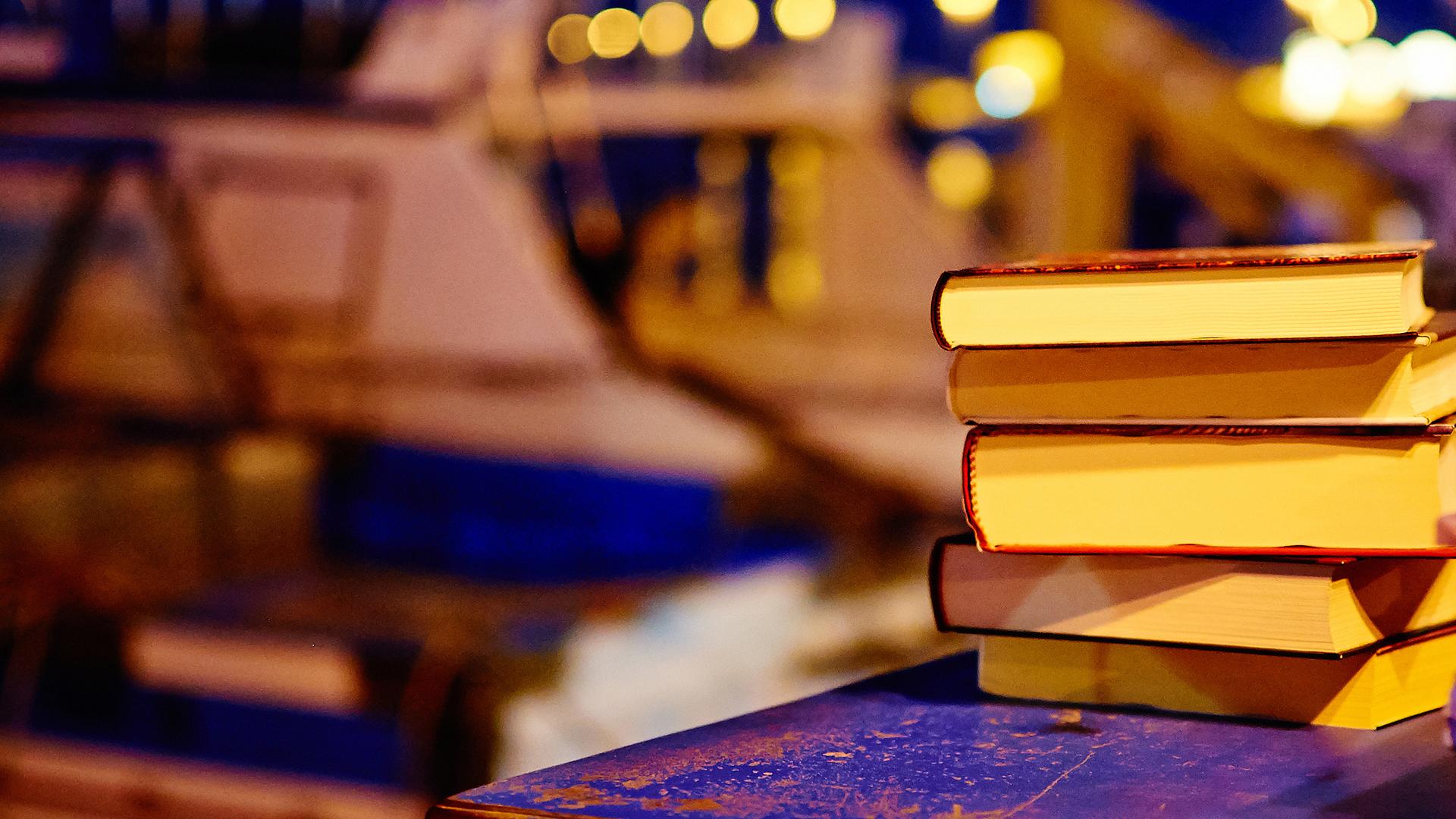When the mail comes in each day at The World, it always brings a pile of new books. Sometimes there's even a feeding frenzy as producers vie for various hot new titles.
Rest assured, we love to read. And with all that reading, some books definitely surfaced to the top of our recommendation list. Here are our favorite books from 2014.
Our picks:
- "The Shadow Hero" by Gene Luen Yang and Sonny Liew.
- "Don't Be Afraid of the Bullets: An Accidental War Correspondent in Yemen" by Laura Kasinof
- "Saga" by Brian K. Vaughan and illustrated by Fiona Staples
- "The Last Man in Russia: The Struggle to Save a Dying Nation" by Oliver Bullough
- "The Bhagavad Gita: A Biography" by Richard H. Davis
- "Pay It Forward" by Catherine Ryan Hyde
- "Kinder Than Solitude" by Yiyun Li
- “Age of Ambition: Chasing Fortune, Truth, and Faith in the New China” by Evan Osnos
- "The Youngs: The Brothers Who Built AC/DC" by Jesse Fink
- "Panic in a Suitcase" by Yelena Akhtiorskaya
- "A Spy Among Friends" by Ben Macintyre
- "The Weirdo Years: 1981-'91" by R. Crumb
- "After Freedom: The Rise of the Post-Apartheid Generation in Democratic South Africa" by Katherine S. Newman and Ariane De Lannoy
- "Rewire: Digital Cosmopolitans in the Age of Connection" by Ethan Zuckerman
- "Stuff Matters: Exploring the Marvelous Materials that Shape our Man-Made World" by Mark Miodownik
- "No Land's Man" by Aasif Mandvi
- "City of Lies: Love, Sex, Death, and the Search for Truth in Tehran" by Ramita Navai
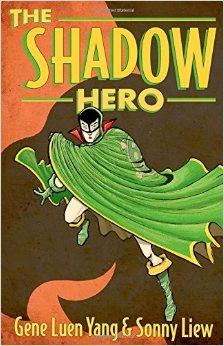 "The Shadow Hero" by Gene Luen Yang and Sonny Liew.
"The Shadow Hero" by Gene Luen Yang and Sonny Liew.
To quote SNL’s Stefan, “This book has everything.” Golden Age comic heroes, tortoise spirits, white-suited gangsters and capes — wonderful handmade capes. "The Shadow Hero" is a revamp of a series called the Green Turtle, believed to be the very first Asian American comic book hero. There’s also a beautiful addition at the very end of the book, explaining the sad reason why the Green Turtle never showed his face. The answer: racism. This book allows the Turtle to show his face, describes his origin story and bashes the racist tendencies of the Golden Age right in the kisser. – Bradley Campbell
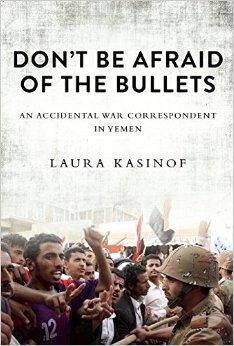 "Don't Be Afraid of the Bullets: An Accidental War Correspondent in Yemen" by Laura Kasinof
"Don't Be Afraid of the Bullets: An Accidental War Correspondent in Yemen" by Laura Kasinof
I read this book to prepare for an interview with its author, who was on my list of journalists who've covered Yemen, a country I've developed a fondness for but never visited. Laura's candid account of her unplanned stint as a war reporter has the kind of detail that news stories leave out, like the hazards of riding a motor scooter through streets where there's likely to be gunfire, or how to talk one's way out of being kidnapped. You meet Laura's circle of expat journalists, some still in Yemen, and witness Yemen's Arab Spring of 2011 as it unfolds. – Stephen Snyder
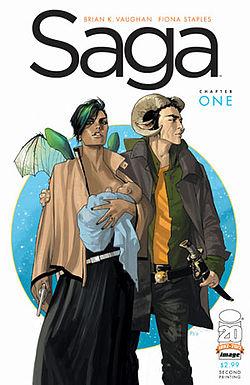 "Saga" by Brian K. Vaughan and illustrated by Fiona Staples
"Saga" by Brian K. Vaughan and illustrated by Fiona Staples
It’s "Star Wars" meets "Romeo and Juliet" — sort of. The backdrop of the story is a war between two different extraterrestrial races, the Landfall and the Wreath. Amid the terror and the chaos, a child is born: Hazel, the child of a Wreath father and Landfill mother. What follows is the family’s desperate attempt to stay together despite the many forces conspiring to rip them apart. It’s a tale of love and loss and code-switching. And if that’s too simple of a description to hook you, let me say that one of the characters is the prince of a planet of robots with televisions for heads. There’s also a poltergeist for a babysitter, a giant walrus-like pet and a sultry, half-spider female bounty hunter. The artwork, done by Fiona Staples, is also beautiful. But don’t just take my word for it, have a look for yourself. – Nina Porzucki
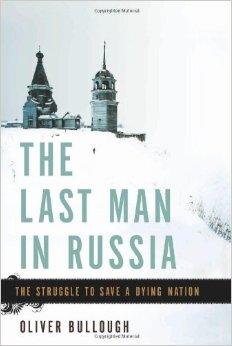 "The Last Man in Russia: The Struggle to Save a Dying Nation" by Oliver Bullough
"The Last Man in Russia: The Struggle to Save a Dying Nation" by Oliver Bullough
This book came out in 2013, but I think it's even more relevant this year as the Russian Federation has gone on a bender of foreign interventions and anti-Western rhetoric. Bullough, who has covered the Chechnya conflicts for Reuters, delves into the long-term personal, cultural and demographic impact of Soviet repression on Russians themselves. He frames his narrative around one Russian Orthodox priest who survived collectivization, World War II and the gulag, but still preached a message of hope and togetherness as most of his compatriots succumbed to cynicism. Bullough makes the case that many problems that plague Russia now — especially rampant alcohol abuse — are tied to pervasive despair. But by seeking out the forgotten history of this one priest, he avoids a miserable, statistic-laden account of contemporary Russia. Bullough is a great writer, and anyone who's traveled in Russia will appreciate his deft handling of the surreal scenes one sometimes encounters in the world's largest country. – Julia Barton
 "The Bhagavad Gita: A Biography" by Richard H. Davis
"The Bhagavad Gita: A Biography" by Richard H. Davis
The Gita is one of the oldest and most fascinating texts ever written, and I love how its "biography" comes to life in this new book. It's a living, breathing text that has constantly been in motion since its origin. Its life begins in ancient India and moves through medieval times; eventually it finds its way to the United States and Europe. This book covers that journey and also highlights the Gita's portrayal in art, music and stage. I should mention this book is part of a new series (Lives of Great Religious Books) published by Princeton University Press. Next on my reading list are the biographies of "The Tibetan Book of the Dead" and "Augustine's Confessions." – April Peavey
"Pay It Forward" by Catherine Ryan Hyde
I just finished reading this book with my 11-year-old daughter. We started a mother-daughter book club four years ago with four other girls, and the girls take turns selecting a book. This was my daughter's pick and it had particular interest because it was offered in both an adult and young adult versions. This came just in time for the holidays as the girls were inspired to come up with own plans to 'pay it forward.' Now they want to make their teachers do the same. – Traci Tong
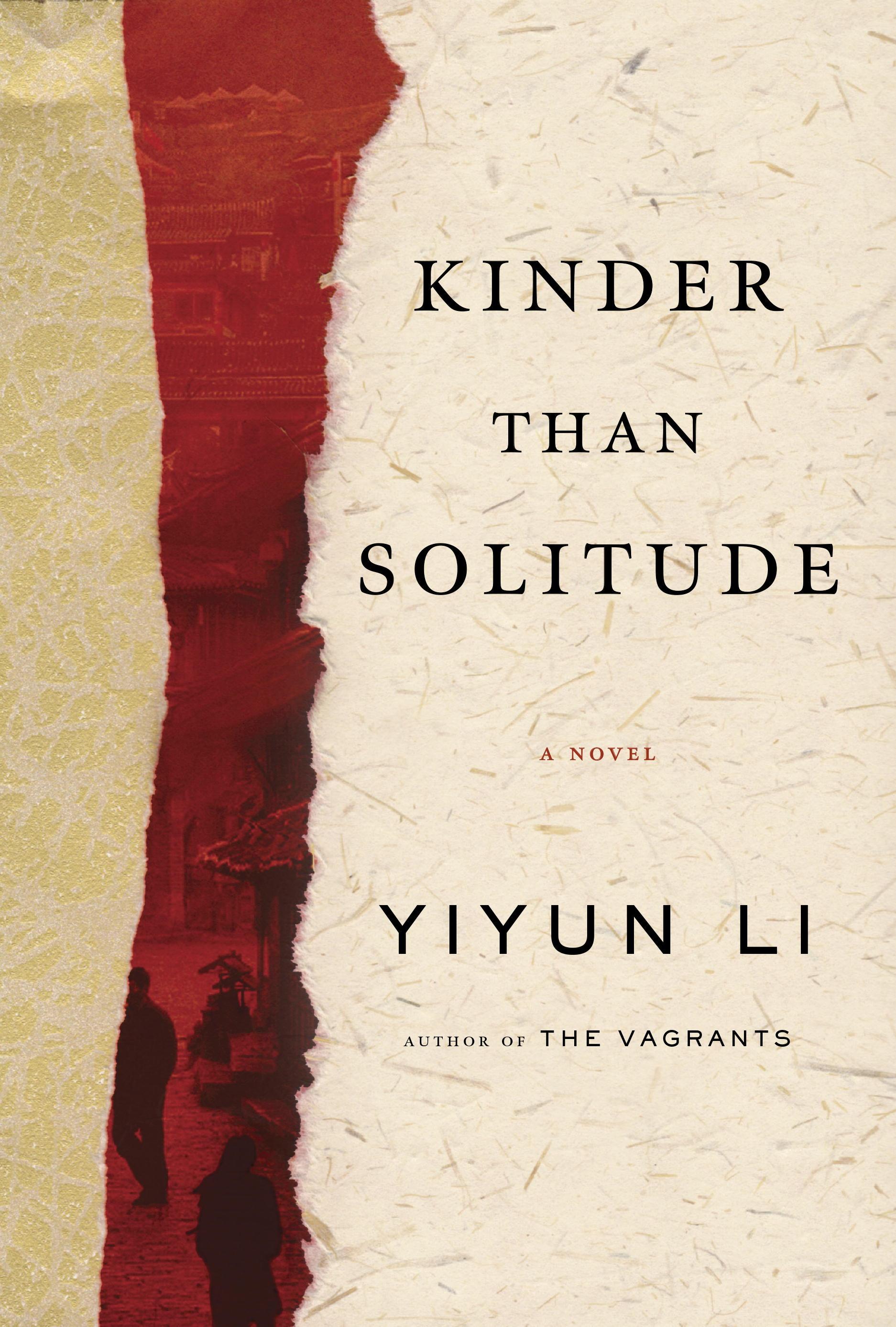 "Kinder Than Solitude" by Yiyun Li
"Kinder Than Solitude" by Yiyun Li
This novel opens with a death and ends with some degree of understanding about it. In between, it traces the lives of three Chinese children into adulthood. They all unsuccessfully try to shake off the past — in particular, the actions and inactions that led to the death of their childhood friend. “Kinder Than Solitude” flashes back to the Beijing of Li’s youth — she has called it her love letter to the city. It also takes in the United States, where two of characters have embarked on new, awkward lives. It returns to a contemporary Beijing, whose people are as dramatically changed as its architecture. No one in this sad, fierce story is especially good, no one truly evil. Instead, they exist at various points in between, trapped by self-deception and circumstance. – Patrick Cox
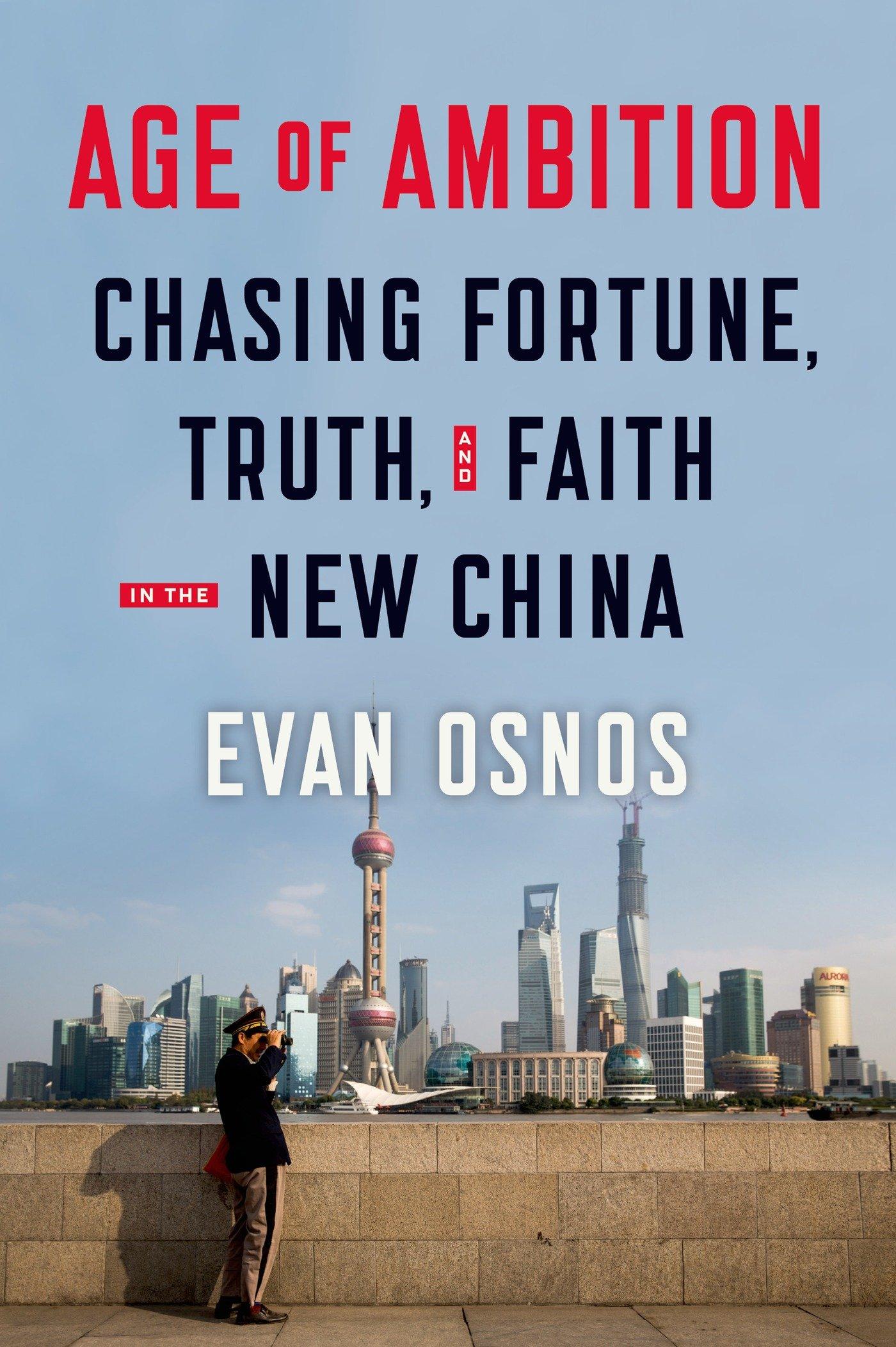 “Age of Ambition: Chasing Fortune, Truth, and Faith in the New China” by Evan Osnos
“Age of Ambition: Chasing Fortune, Truth, and Faith in the New China” by Evan Osnos
This book came out in the spring, and I finally got around to reading it on a flight to Hong Kong at the start of the big protests there in early October. It was a fascinating story to cover: Here was a historic contradiction boiling over in front of our eyes, the long-standing tension between Hong Kong’s special political status and democratic rights and the steadfastly anti-democratic nature of leaders in Beijing. A similar contradiction is at the center of Osnos' book: How can China be rising so fast, showing so much hope and promise for the future of its people, but at the same time demonstrate such a penchant for authoritarian rule? This is the question that drives the story for Osnos, and it makes for great reading. The other thing "Age of Ambition" does so well is deal with both large and small perspectives. The book’s characters are fascinating, and their stories are reported in rich detail. But Osnos also writes deftly and engagingly about the historical context that makes these individuals so extraordinary. Whether or not you’re captivated by all things China, this is a wonderful book. Here's our interview with the author. – Matthew Bell
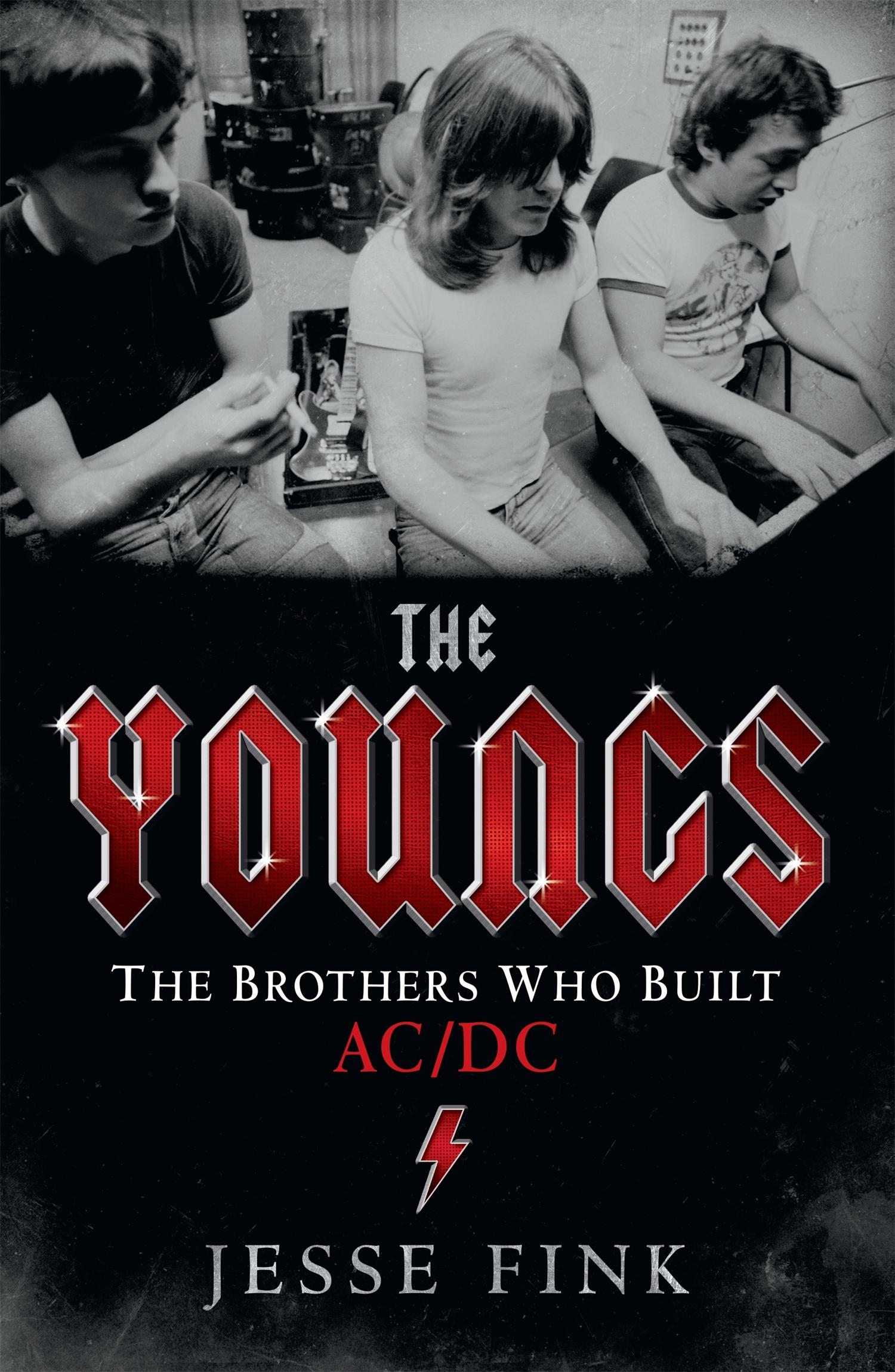 "The Youngs: The Brothers Who Built AC/DC" by Jesse Fink
"The Youngs: The Brothers Who Built AC/DC" by Jesse Fink
“Stop being so bloody pretentious.” Australian author Jesse Fink’s words have been ringing in my ears all year, almost like an AC/DC song like "Thunderstruck" or "Back in Black" rings in your ears long after you’ve heard it. Fink’s book tackles the enigmatic band of brothers behind arguably the world’s biggest, loudest and most successful hard rock act. For a rock fan like me, it’s a must read. Well-written, thoroughly researched and not fawning at all. Let go of all your public radio pretentions about music and rock out. – Clark Boyd
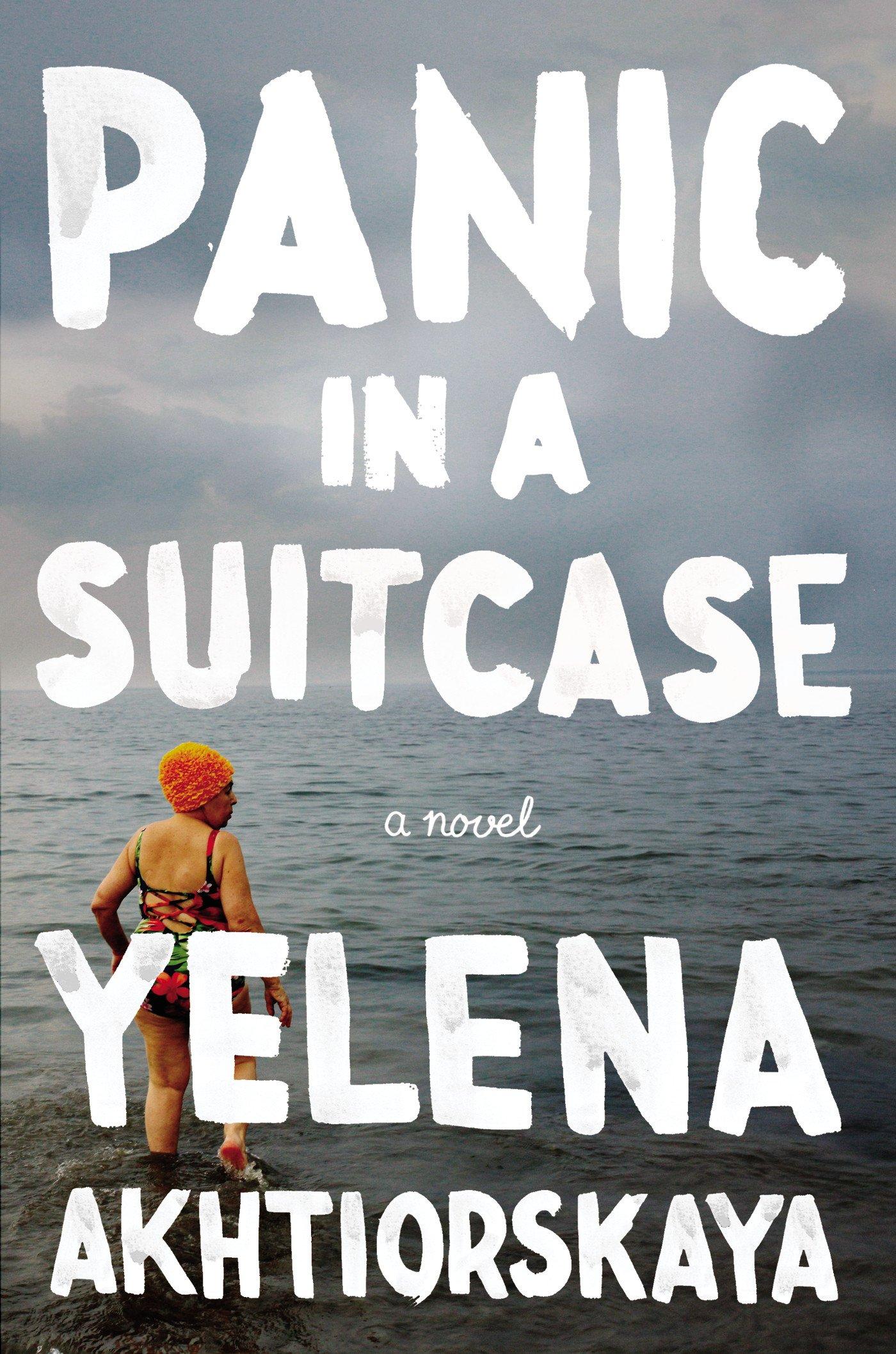 "Panic in a Suitcase" by Yelena Akhtiorskaya
"Panic in a Suitcase" by Yelena Akhtiorskaya
Finally, an epic immigrant story minus the schmaltz. This is a quick read about a dysfunctional family of doctors who abandon Ukraine but can't come to grips with their new life in Brighton Beach, New York. The daughter, a nurse, ends up cleaning houses. Her husband is stuck at home, and their 9-year-old granddaughter, Frida, isn't exactly embracing the American experience. Somehow they manage to coax the family black sheep, a poet name Pasha, to join them in Brooklyn. What follows is a look at why staying behind in the "Old Country" might be a more noble choice than starting a new life abroad. Akhtiorskaya told us she finds it "heartbreaking" when immigrants come to the US and "just set up a little photocopy of the city left behind, even though you went to so much trouble to leave the old city." It's sort of an "anti-immigration" book full of admiration for immigrants. – Joyce Hackel
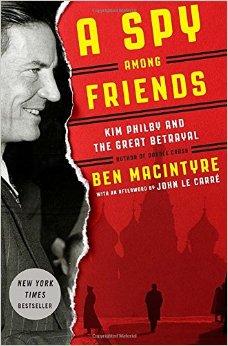 "A Spy Among Friends" by Ben Macintyre
"A Spy Among Friends" by Ben Macintyre
Kim Philby was a Soviet mole in British intelligence in the years after the Second World War, rising high in the ranks before he was finally exposed. I was familiar with his story, but this telling focuses on the perspective of two of his closest friends, themselves high ranking American and British intelligence officers. It’s a page-turner that reads like a John Le Carré spy thriller — he fittingly wrote the afterword. There are also walk-on parts for James Bond creator Ian Fleming and the drummer for the British band, The Police. How could I resist? – Jonathan Dyer
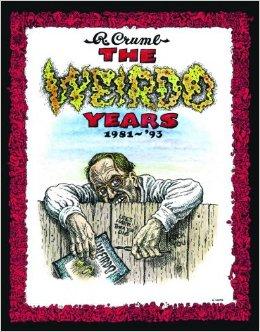 "The Weirdo Years: 1981-'91" by R. Crumb
"The Weirdo Years: 1981-'91" by R. Crumb
When I really need to unwind, I often reach for graphic novel — or one of my weaknesses, underground comics. This is one great volume of them. – Marco Werman
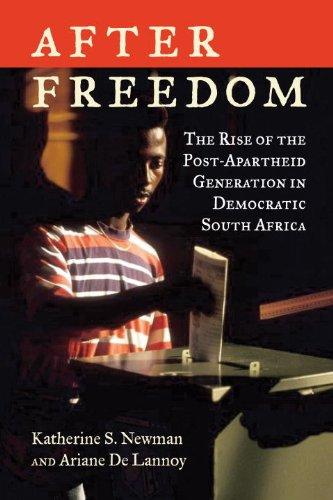 "After Freedom: The Rise of the Post-Apartheid Generation in Democratic South Africa" by Katherine S. Newman and Ariane De Lannoy
"After Freedom: The Rise of the Post-Apartheid Generation in Democratic South Africa" by Katherine S. Newman and Ariane De Lannoy
I read this book right before I landed in Cape Town last month to do some reporting for our new project, Across Women's Lives. We journalists are prejudiced against academic books, often finding them a slog, and I expected this ethnographic account of the lives of seven young people to be no different. I was wrong. It's an engaging and illuminating account of the way changes in South African society are buffeting the lives of the "freedom generation." By the end, I was deeply invested in the struggles and aspirations of Thandiswa, Amanda, Ambrose, Daniel, Brandon, Anna and Suzanne. Thanks to Katherine Newman and Ariane De Lannoy for telling their stories. – Jeb Sharp
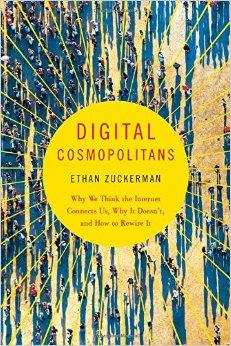 "Rewire: Digital Cosmopolitans in the Age of Connection" by Ethan Zuckerman
"Rewire: Digital Cosmopolitans in the Age of Connection" by Ethan Zuckerman
One of my favorite contemporary writers is Ethan Zuckerman. I've been following his blog for a long time, where, In post after post, Ethan works through arguments, ideas, curiosities and passions. He never ceases to surprise me with the range of topics and depth of thinking on various issues. After seeing that Ethan was sitting down to write his first book, I knew it would be something worth every turn of the page or swipe of the screen. In "Rewire," he offers an important reboot of the ideas behind being a cosmopolitan in our fast-paced and deeply connected world. Cosmpolitanism, as argued by Ghanaian Amerian philosopher Kwame Anthony Appiah and relayed by Zuckerman, is about two things: an "interest in the belief and practice of others, striving to understand," and that cosmopolitans take "seriously the notion that they have obligations to people that are not their kin, even to people who have radically different beliefs." The promise of the open internet is that cosmopolitanism should be getting easier, but that's not always the case. Zuckerman argues that we can do better, and we should. – Steven Davy
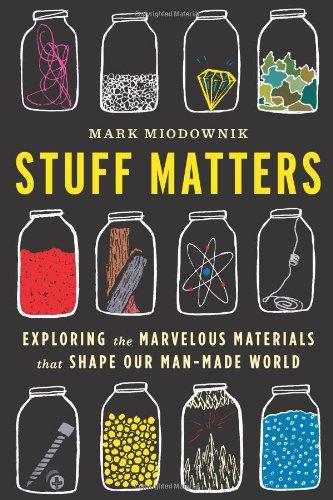 "Stuff Matters: Exploring the Marvelous Materials that Shape our Man-Made World" by Mark Miodownik
"Stuff Matters: Exploring the Marvelous Materials that Shape our Man-Made World" by Mark Miodownik
A very cool and very readable dive into a dozen or so of the mundane and amazing substances that make life easier and more enjoyable, from glass to chocolate. Also a very nice distraction from more weighty concerns. – Peter Thomson
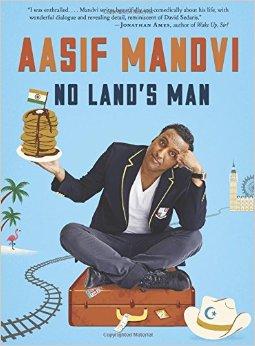 "No Land's Man" by Aasif Mandvi
"No Land's Man" by Aasif Mandvi
Sure there are your typical books about the "immigrant experience" — usually pretty flowery, poetic pieces that make you cry. But Aasif Mandvi's first book, "No Land's Man" is a hilarious collection of stories detailing his unique multicultural experience growing up in an Indian Muslim household in the United Kingdom, and then in Florida. His stories, like the time he perfected a performance of "Billy Jean" in front of his high school, or how he became The Daily Show's Muslim correspondent, even though he says he spends more time at bars than in mosques, seamlessly weave in humor and address larger issues that impact immigrants and their children. – Shefali Kulkarni
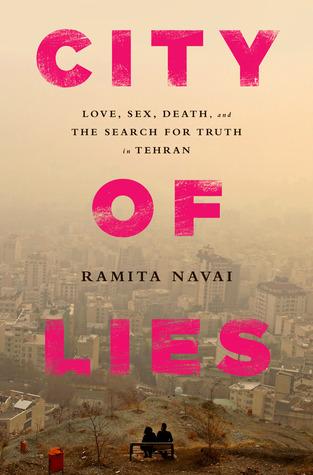 "City of Lies: Love, Sex, Death, and the Search for Truth in Tehran" by Ramita Navai
"City of Lies: Love, Sex, Death, and the Search for Truth in Tehran" by Ramita Navai
Ramita Navai’s “City of Lies” was a great read. She takes readers to corners of Iranian society that are very difficult to penetrate. And she does that with great personal risk. Listen to an interview with the author here. – Shirin Jaafari
What were your favorite world books this year? Let us know what we missed in the comments.
More from The World's Year in Review:
Our coverage reaches millions each week, but only a small fraction of listeners contribute to sustain our program. We still need 224 more people to donate $100 or $10/monthly to unlock our $67,000 match. Will you help us get there today?
